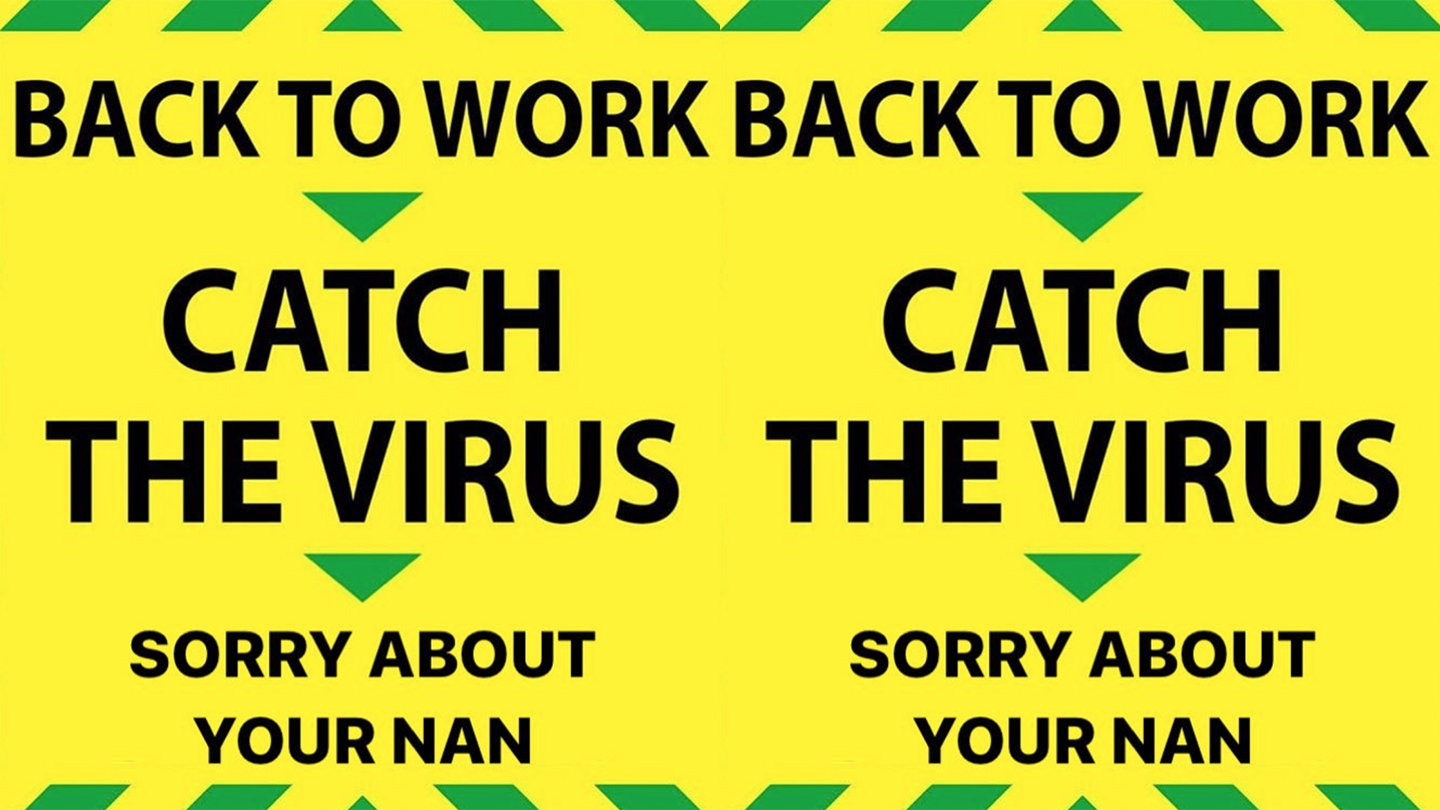This week Boris Johnson went on national TV to announce his plans to lift the coronavirus lockdown. It was an unmitigated disaster. His calls for us to “stay alert, control the virus and save lives” were vague, the rules are unclear and, most dangerously of all, they encourage those with jobs where working from home isn’t possible to return to work. In doing so, Boris Johnson has sent many people back to workplaces where social distancing is impossible, while plunging the nation into a state of confusion and turmoil.
It won’t be middle class professionals who are forced into the path of the virus. It won’t be the privileged who are forced back onto public transport. It won’t be people like Boris Johnson, and his wealthy backers, who are made to return to jobs where social distancing is impossible. Who will it be then? Working class people. Those who work on construction sites, in manufacturing and those who are often underpaid and under-appreciated despite keeping the country running. Those who are labeled “low-skilled” but whose work is essential in maintaining a functioning society.
A quick look at the statistics reveals that the communities who faced the brunt of inequality, austerity and racism before the pandemic are suffering the most at the hands of the virus. Black British people are four times as likely to die from COVID-19 as white people. Construction workers, bus and coach drivers, taxi drivers, and plant processing workers are also among those with the highest coronavirus death rates, according to figures released by the Office for National Statistics (ONS).
This government clearly doesn’t have our best interests in mind. It’s therefore up to us to protect ourselves, to protect each others. We can do that by joining unions — now more important than ever before. Unions are vital in protecting workers rights and ensuring that businesses provide their workers with PPE, maintain social-distancing measures and make certain that no one is at risk of being infected.
Unions exist as a form of collective bargaining. Their underlying logic is that to balance the massive power disparity between employers and employees, workers can band together to demand safe working conditions, good pay and other needs. Many jobs, of course, are already dangerous but the coronavirus crisis adds another element of risk. So, in the weeks and months to come, as Boris Johnson calls for businesses to “encourage their workers to return”, unions will play a vital role in keeping people safe.
Boris Johnson’s chaotic announcement has come at the worst time. As the weeks have worn on in lockdown, the financial pressure on both working class people and businesses has grown immensely. A weakened benefit system destroyed by a decade of austerity means that many are struggling financially as work dries up and redundancies kick in. People will feel the need to return to work even if conditions aren’t safe. Businesses, feeling the strain of the recession, will invariably ask employees to return. This is a perfect storm of conditions setting the UK on the path towards a second wave of the outbreak; towards countless workers losing their lives.
This is exactly why unions are so integral: not only for ensuring the safety of workers but also in protecting wider communities. By keeping workers safe, their actions will prevent higher rates of infection from putting pressure on the NHS and claiming lives. There was a reason Margret Thatcher in Britain and America’s Ronald Reagan decimated unions: because, as they both dismantled industry in their nations and implemented policies that ruined the lives of workers, they knew the power of unions to uphold the rights of those they were aiming to dispossess. And now this power is more important than ever.
As society changes in the coming weeks, trust that you will not see MPs crowded together inside the Houses of Parliament. Yet Tories expect construction workers and other working class employees to do so in their own workplaces. You won’t see Boris Johnson’s advisers taking public transport. And yet, by encouraging the reopening of businesses, they expect low-paid workers with no other mode of transport to do just that. Their confusing policy is simply the latest in a series which sums up the last decade of Britain in a nutshell: a disconnected government of the elite, totally removed from the struggles we ordinary people face, with one rule for the rich and another for the poor.
Fiona Bruce, one the BBC’s top political journalists, said people in “lower skilled jobs such as security guards, care workers and bus drivers are among those most likely to die from the coronavirus”. Her labelling these vital workers as “low-skilled” is exactly the problem”. It’s dehumanising. How are security guards who keep people safe, carers who look after the elderly and vulnerable, and bus drivers who keep the city moving “low-skilled”? It provides justification for the government and businesses employing these individuals to pay them poorly, to not value them, to not provide them with PPE. It’s time for the 99% to come together, to stand up for each other, to join a union.
Discover more about which union might be right for you, and how to join it.
